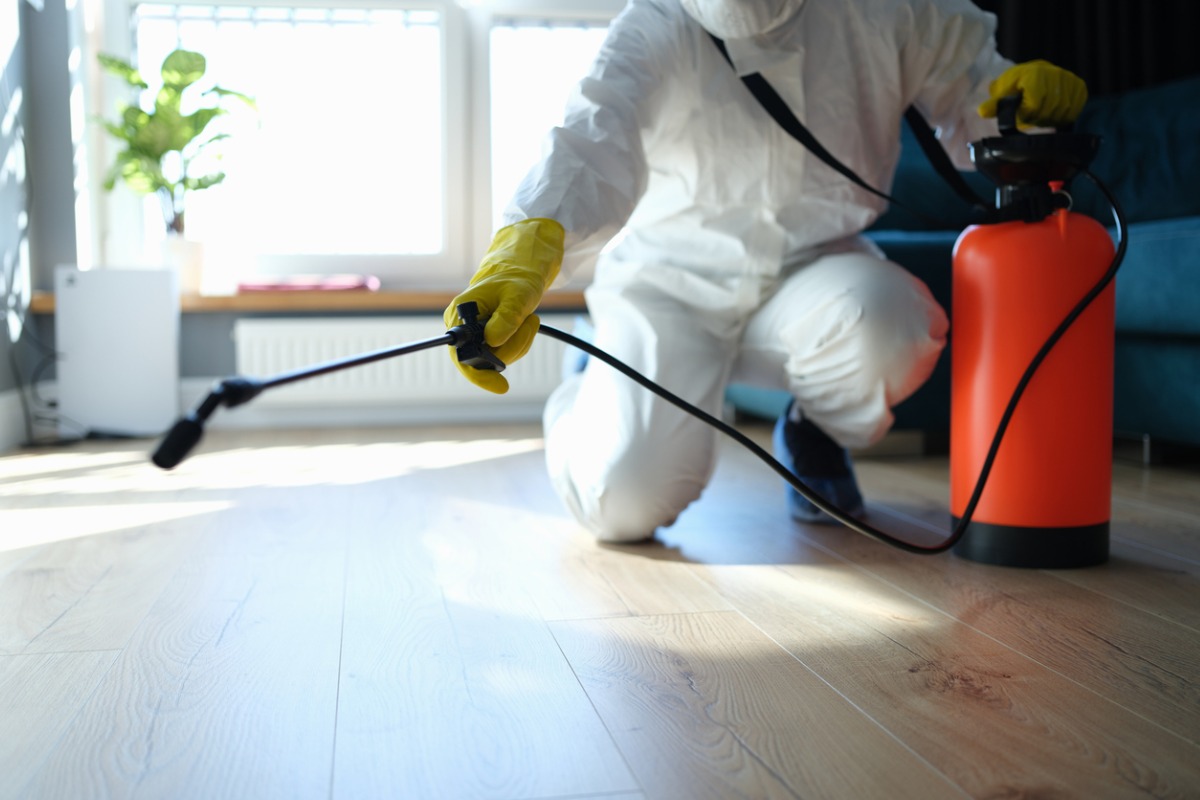Expert Pest Control to protect your property pest-free year-round.
Expert Pest Control to protect your property pest-free year-round.
Blog Article
Eco-Friendly Pest Control Approaches for Managing Wild Animals in Urban Locations
Urban areas typically find themselves at the junction of human activity and wildlife, resulting in one-of-a-kind difficulties in parasite management. Environmentally friendly strategies emphasize sustainable coexistence, employing techniques such as environment modification and natural repellents to mitigate human-wildlife problems. These approaches not only shield the setting yet also enhance community interaction in wildlife monitoring. As city populaces continue to grow, understanding the dynamics of wildlife communications comes to be significantly crucial. What ingenious techniques can be applied to ensure both ecological equilibrium and metropolitan safety and security? Exploring this inquiry reveals an engaging landscape of possible solutions.
Understanding Urban Wild Animals Dynamics
Understanding Urban Wild animals Characteristics is important for developing reliable and eco-friendly parasite control methods. Urban areas are increasingly becoming environments for numerous wild animals species, driven by factors such as habitat fragmentation, food schedule, and human encroachment. Recognizing these dynamics permits a nuanced technique to pest monitoring that lines up with eco-friendly principles.
Urban wild animals usually consists of species such as raccoons, squirrels, and birds, which adapt to city settings, locating niches in eco-friendly spaces, parks, and even domestic areas. Their presence can bring about disputes with humans, especially when they exploit human sources for food and sanctuary. Comprehending the behaviors and environmental roles of these varieties informs approaches that reduce adverse interactions while advertising biodiversity.
Additionally, recognizing the interdependencies within urban ecological communities assists in identifying vital areas for environment preservation and repair. This knowledge adds to the advancement of integrated pest monitoring (IPM) techniques that take into consideration the eco-friendly balance, thereby reducing dependence on hazardous chemicals. By fostering conjunction between people and city wild animals, cities can create healthier environments that profit both locals and local ecosystems, paving the way for sustainable urban living.
Natural Repellents and Deterrents
Natural repellents and deterrents offer a sustainable choice to conventional parasite control methods by utilizing the power of nature to keep undesirable types away. These green services usually use plant-based ingredients, important oils, and other normally occurring materials that prevent insects without damaging the setting.
One reliable all-natural repellent is peppermint oil, which is recognized to fend off rodents and insects. Its strong aroma is undesirable to many bugs, making it a popular choice for metropolitan settings. Likewise, vinegar and citrus peels can offer as deterrents, as their strong odors are normally unappealing to different wildlife.
In addition, diatomaceous earth is a natural powder that can be spread out in locations prone to insect task, efficiently dehydrating and deterring bugs without positioning risks to non-target types. Moreover, garlic sprays and neem oil are identified for their capacity to repel a large range of bugs, including both bugs and larger wildlife.
Carrying out these natural repellents not just minimizes dependence on chemical pesticides however likewise promotes a much healthier city community, cultivating a more well balanced conjunction between people and wild animals. By utilizing these methods, metropolitan locations can successfully take care of insect populaces while minimizing environmental effect.
Habitat Adjustment Methods
Efficient habitat alteration strategies play a critical role in sustainable pest administration by altering the atmosphere to make it less for pest problems. By comprehending the eco-friendly dynamics of metropolitan locations, homeowner can apply tactical adjustments that hinder insects while advertising biodiversity.
(Bat Removal)One key strategy entails maintaining proper sanitation. This includes normal waste removal, safeguarding garbage can, and removing standing water to lower reproducing websites for bugs and rats. Furthermore, landscaping methods such as picking native plants can boost eco-friendly equilibrium, offering environments for advantageous microorganisms while decreasing resources for bugs.
One more crucial approach is to secure entry points in structures. Checking and repairing splits in structures, walls, and windows can considerably lower parasite access. Developing physical barriers, such as fencings or plant barriers, can prevent wild animals movement into human-inhabited areas.
Integrated Insect Monitoring Practices
Structure upon environment alteration methods, incorporated pest administration (IPM) methods provide a holistic technique to managing bug populaces while lessening environmental impact. IPM combines numerous methods, consisting of biological, cultural, mechanical, and chemical controls, to attain effective parasite management.
Biological control includes the intro of natural predators or bloodsuckers to minimize insect populaces. Cultural practices, such as crop rotation and hygiene, interrupt pest life process and diminish their habitats - Pest control service. Mechanical controls, like traps and barriers, provide instant remedy for parasite pressures without chemical treatment
Chemical controls are utilized as a last hope, concentrating on targeted applications that restrict harm to non-target types and the setting. The selection of environmentally pleasant pesticides, when needed, is integral to the IPM structure. Furthermore, keeping track of bug populaces and evaluating potential damage aids notify decision-making, making certain that treatments are timely and reliable.
Area Involvement and Education

(Rodent control Port Charlotte)Workshops and informative sessions can outfit residents with knowledge about native varieties, habitat preservation, and efficient non-toxic parasite administration strategies. Collaboration look what i found with colleges, neighborhood companies, and government companies additionally improves instructional outreach, making certain that necessary information reaches varied target markets.
Furthermore, community-led initiatives, such as community clean-up days and environment repair jobs, not just advertise biodiversity yet additionally strengthen community ties. Pest control service. By encouraging homeowners to share their experiences and monitorings, areas can develop targeted techniques that attend to particular local bug issues
Incorporating comments from residents into insect management prepares enables an extra receptive and adaptive approach to wild animals challenges. Inevitably, educated and involved communities are essential to attaining lasting success in green insect control, resulting in much healthier city atmospheres that respect both human and eco-friendly demands.

Verdict
In verdict, environmentally friendly bug control approaches deal lasting options for managing metropolitan wildlife. By prioritizing environment adjustment, using all-natural repellents, and executing integrated insect management practices, neighborhoods can foster an unified conjunction with regional fauna.
Report this page